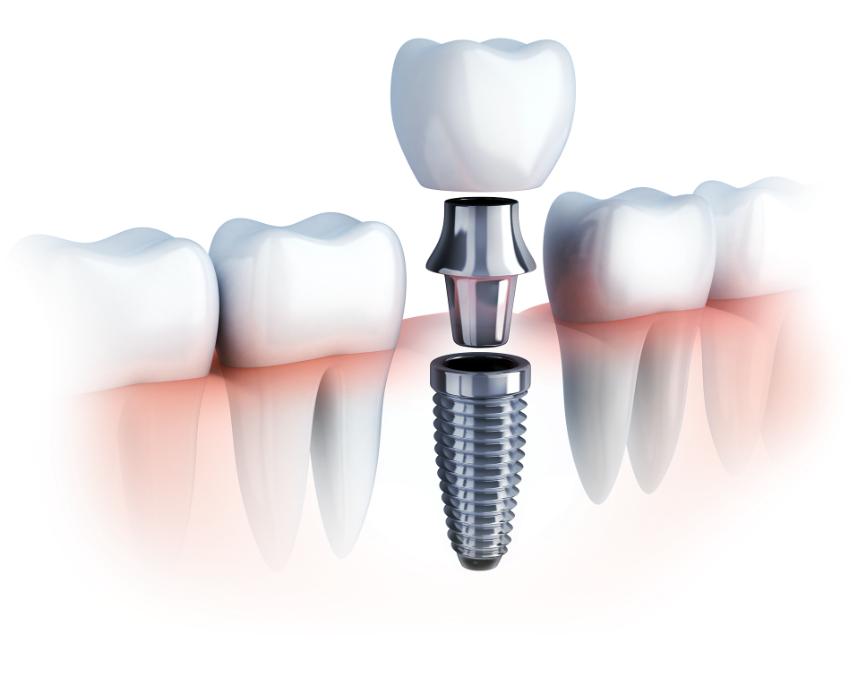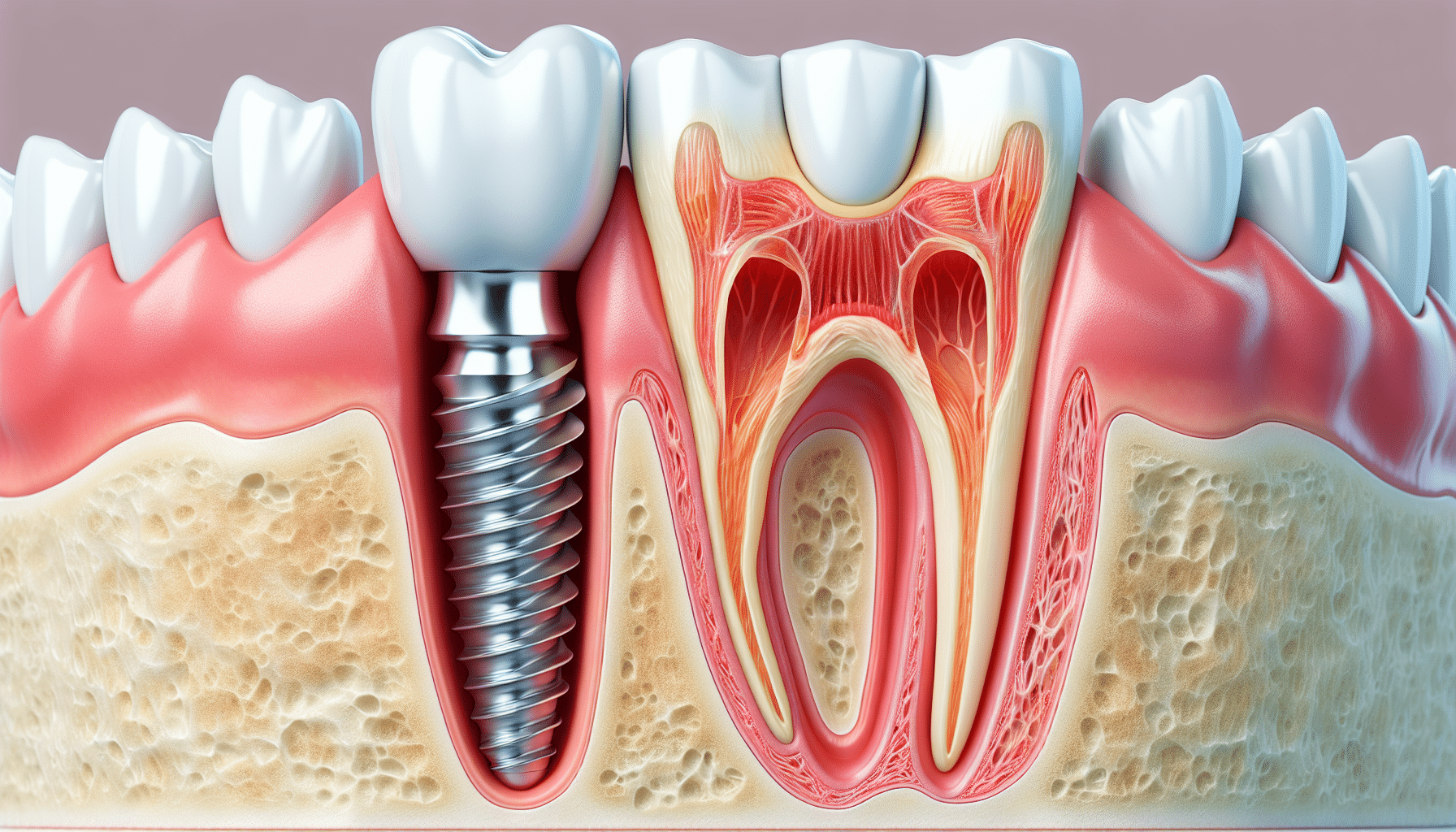Dental Sense Things To Know Before You Get This
Table of ContentsLittle Known Facts About Dental Sense.Dental Sense Fundamentals Explained6 Simple Techniques For Dental SenseAll About Dental Sense
are clinical devices operatively implanted into the jaw to restore a person's capability to chew or their look. They supply assistance for artificial (fake) teeth, such as crowns, bridges, or dentures. When a tooth is lost because of injury or illness, an individual can experience complications such as quick bone loss, defective speech, or changes to chewing patterns that cause pain.Oral implant systems are composed of a dental implant body and dental implant abutment and may likewise consist of a joint addiction screw. Dental implant vs bridge. The dental implant body is operatively placed in the jawbone instead of the tooth's origin. The oral implant joint is typically connected to the dental implant body by the abutment addiction screw and expands through gums into the mouth to support the attached man-made teeth
(https://www.storeboard.com/dentalsense)Framework of The Oral Implant System selecting oral implants, talk to your oral provider about the possible advantages and dangers, and whether you are a prospect for the procedure. Things to take into consideration: Your total health and wellness is a crucial consider determining whether you are an excellent prospect for dental implants, just how long it will certainly take to heal, and how much time the dental implant may remain in location.
Smoking may impact the healing process and decrease the lasting success of the dental implant. The healing procedure for the implant body might take several months or longer, throughout which time you usually have a short-term joint instead of the tooth. the dental implant treatment: Carefully comply with the oral hygiene directions offered to you by your oral service provider.
Top Guidelines Of Dental Sense
Implant failing can cause the requirement for another operation to repair or change the implant system. Recovers the ability to eat Recovers cosmetic appearance Helps keep the jawbone from diminishing as a result of bone loss Preserves the wellness of the surrounding bone and periodontals Helps maintain adjacent (neighboring) teeth steady Enhances quality of life Damage to bordering all-natural teeth throughout dental implant placement Injury to the surrounding cells throughout surgery, such as sinus opening Injury throughout surgery (for instance, fracture of surrounding jawbone) Insufficient function, such as seeming like the teeth do not attack with each other generally A sensation that the tooth hangs or turning in position resulting from a joint screw loosening Implant body failing (looseness of the dental implant body) because of systemic infection, which may be much more likely in patients with unchecked diabetes mellitus because of local infection in bone and gum tissues supporting the dental implant body because of postponed healing, which may be extra most likely in individuals who smoke Trouble cleaning up the gum tissues around the implant, leading to inadequate oral hygiene Without treatment gum disease Post-surgical numbness as a result of nerve impingement or damages Constantly alert wellness treatment suppliers and imaging professionals that you have oral implants prior to any type of magnetic resonance imaging (MRI) or x-ray procedures.
FDA is not familiar with any kind of negative occasions reported for MRI or x-ray treatments with dental implants. Dental implants systems are commonly made of materials that follow international consensus criteria of the International Organization for Standardization (ISO) or ASTM International. These standards have information of what makes a safe product.

An oral implant is a structure that replaces a missing tooth. With screw-like tools, the doctor inserts an implant into the jawbone, and it acts as an anchor for a synthetic tooth, called a crown.
The Buzz on Dental Sense
Some people are not eligible for dental implant surgical treatment. It is for oral cosmetic surgeons to operate on people with: navigate to this site acute illnessuncontrollable metabolic diseasebone or soft cells disease or infectionIf these issues are resolved, a person can have the surgery. In, dental cosmetic surgeons avoid operating people with: If individuals with any one of the above go through dental implant surgical treatment, there is a higher risk of the implant failing.

Dental implant surgical treatment is a tailored process. It's not the exact same for every person. Yet the complying with gives a basic overview of what you can expect your dental expert, dental doctor, periodontist or prosthodontist to do: Put the implant operatively. Provide you time to recover. Attach the message and last crown, bridge or denture.
Next, your doctor will thoroughly position the dental implant into your jaw. If your dental implant is near the front of your mouth, your dental practitioner will certainly make a short-term tooth for you to put on until you recover.
The Only Guide for Dental Sense
During the recovery stage, your jawbone needs to fuse to the dental implant. This process can take anywhere from 3 to nine months.
Once your dental implant heals, your dental expert can connect the abutment (tiny adapter message) and your final remediation (crown, bridge or denture). This typically takes about one hour to finish and might call for a second minor surgery. You shouldn't really feel any kind of discomfort throughout your dental implant treatment because your company will use drug to numb your gum tissues.